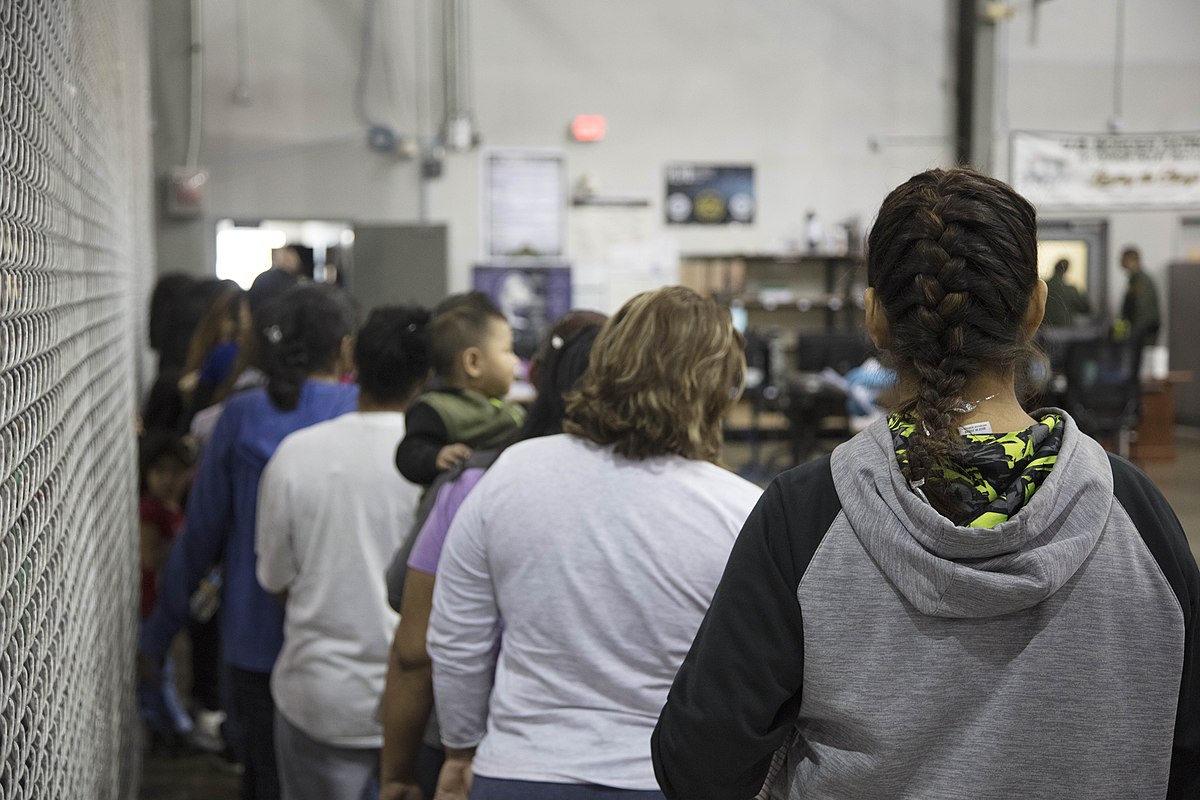- 14 3402-5578
- Rua Hygino Muzy Filho, 737, MARÍLIA - SP
- contato@latinoobservatory.org
 U.S. Customs and Border Control
U.S. Customs and Border Control
In the United States, the situation in immigration detention centers has reached alarming levels. Overcrowding, lack of beds and absence of basic conditions, such as access to bathrooms, have turned these facilities into inhumane places, where people's dignity is systematically violated. In Miami, there are reports of immigrants detained in conference rooms without bathrooms; in New Mexico, not everyone is able to sit down for meals; in Texas, women are forced to sleep on the cold floor for lack of beds.
This is the case of América Platt, as reported in the Washington Post article, a 29-year-old woman recently deported to Mexico — from where she had fled as a child to escape an abusive father — which illustrates the drama experienced by many. Detained after being stopped for an unpaid fine, she spent sleepless nights on the ground before being deported, showing how even minor violations can lead migrants to degrading conditions.
The increase in the number of detainees is a direct result of the Trump administration's policy of stepping up deportations, bringing the population in ICE custody to about 48,000 people — well above the funded capacity of 41,500 beds. Alarmingly, nearly half of these detainees have no criminal charges, and yet they face conditions comparable to those in maximum-security prisons. Meanwhile, supervision and quality control measures in the facilities were weakened by the government itself, with the closure of inspection agencies, further increasing the vulnerability of these populations.
Also according to the publication, despite recognizing the problems, ICE justifies that it is transferring detainees between centers and seeking to quickly expand its capacity, including signing millionaire contracts with private prisons and trying to circumvent bureaucracies to open new units. However, local resistance and the lack of adequate infrastructure make this process slow and full of obstacles.
Democratic lawmakers have already reacted, demanding the restoration of enforcement mechanisms and denouncing that the elimination of these agencies undermines not only human rights, but also public trust in the management of immigration. The government, in turn, claims that the previous supervision only created obstacles to compliance with the law.
The scenario outlined reveals an overloaded system,
which, under the justification of security, ends up treating thousands of
immigrants — many without criminal records — as dangerous criminals, depriving
them of basic rights and exposing them to precarious conditions. In the midst
of an aggressive policy of detention and deportation, the question that looms
is the extent to which the United States is willing to sacrifice humanitarian
principles in the name of supposed national security.











